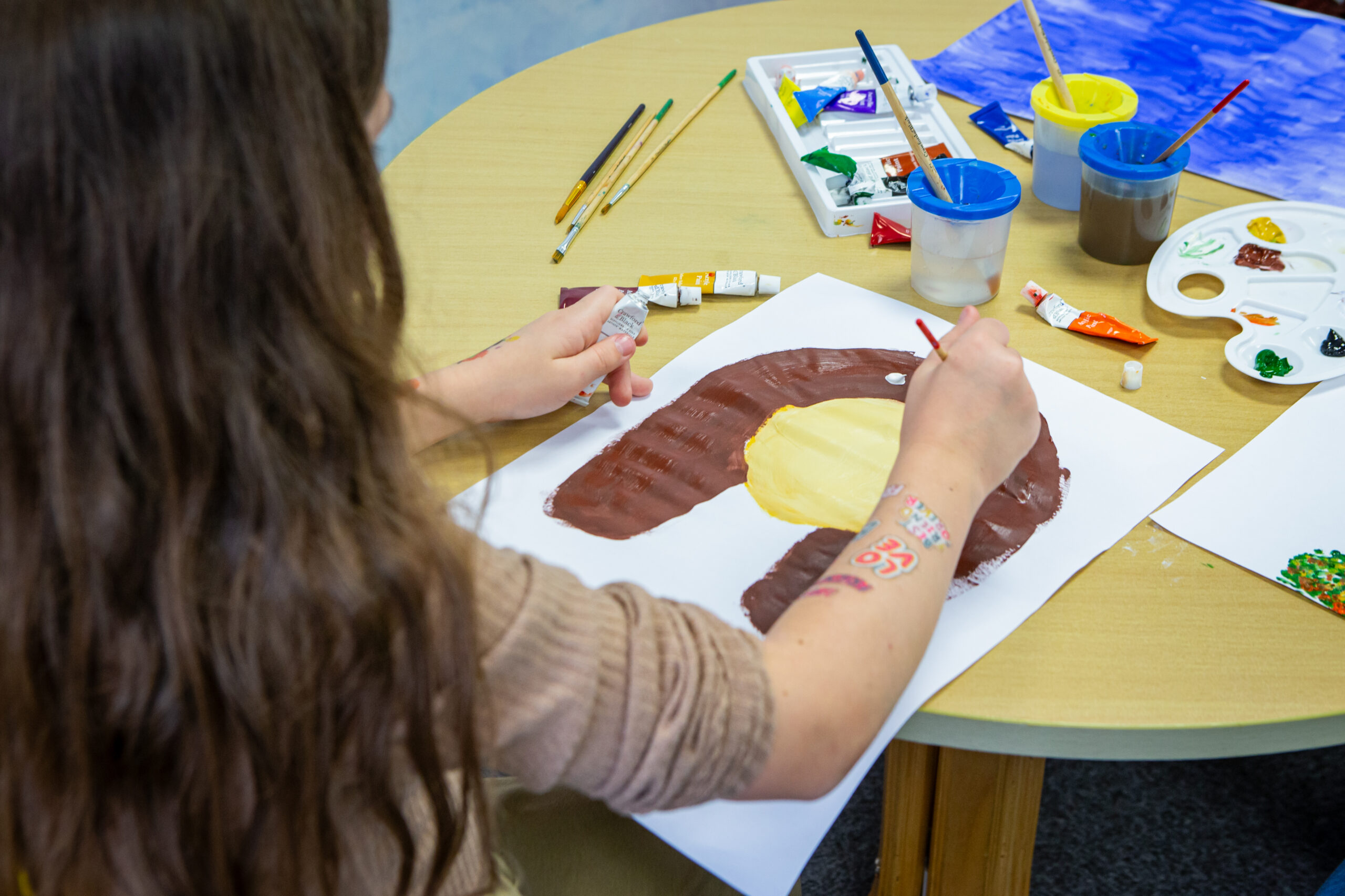Our mentoring supports children when they are going through a difficult time, and offers specialist support to build their resilience, self-esteem and hope for the future; preventing a lifetime of struggle. One of our youth workers shares her reflections on the journey of one of her mentees, and the transformative power of play and art to learn how to regulate emotions.
“Alice* lives with her mom and two brothers, whom she enjoys playing with. While there can sometimes be frictions, they are very close, and Alice often talked about them in our mentoring sessions. She is very articulate, curious about others, open and friendly to everyone she meets. When I first met her, she was struggling, as she can be hyperactive at times and find it hard to listen to and follow instructions. She had just been diagnosed with ADHD, which impacts her ability to understand time and patience and she can be very agitated if things do not happen because she struggles to understand how long certain activities can take. She can often throw a tantrum and would often shut down if told ‘no’.
With all of this going on, Alice was referred to us because her mum needed support in helping to manage her behaviour, finding techniques that can help Alice regulate her emotions, and learn to accept a “no” for an answer. I remember when I first met Ada*, Alice’s mum. She was so hopeful that having a mentor was going to help Alice before things got any worse. Ada is very proactive in finding the right support for Alice, which has meant we have been able to work together throughout all these months, and she would often come to me for advice on how to manage Alice’s behaviour at home.
As soon as we started our weekly sessions, it became very clear to me that Alice is a very active and creative child. She loves to create art, draw, paint or make something from scratch. She loved our painting sessions the most! It was great to see her express her creativity. I think she found these sessions soothing; she mixed different colour paints together and sometimes just created shapes and lines. Sometimes, at the end of our sessions, l would stick her finished painting onto the wall for decoration and keep it in the office for her and others to see. She enjoyed this so much, she was so proud that people were seeing what she created, and it was a great way to show her just how capable she is, and to highlight her strengths.
But we didn’t stop there. Another session that Alice particularly enjoyed was when we made our lip balm. She had been asking me for a while if we could do it together… so, l ended up buying the kit! It was great to see how seriously Alice took the process: she was careful in pouring in the right amount of ingredients and mixing them well together. Alice was so respectful during this session and carefully listened to my instruction, and she was cautious in using all the ingredients in the correct order. Bearing in mind how much Alice was struggling to listen to and follow instructions when we first met, I was so proud to see this! It was such a massive improvement, and I was so proud of her.
And it wasn’t just me who was seeing these improvements. At school and home, she was increasingly more able to manage her emotions and behaviour. Her mum mentioned how the frictions with her brothers had diminished, and her teacher mentioned she had been doing so well, she was now in charge of lining her classmates up before lessons. Now that Alice has graduated from our mentoring programme, I have no doubt she will carry the tools she has learned with her, and I am proud and excited to see her thrive”.
*Please note, images and names have been changed to protect people’s privacy.
